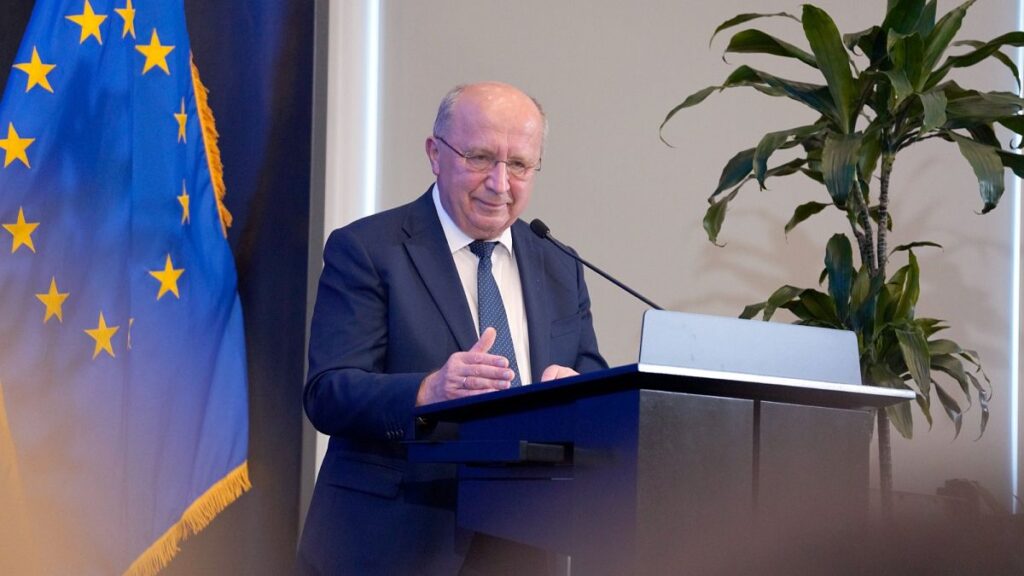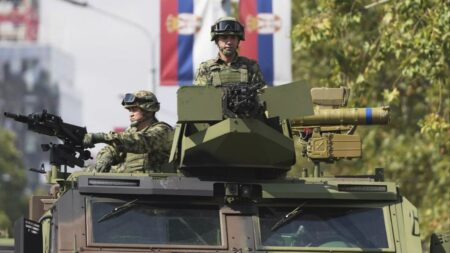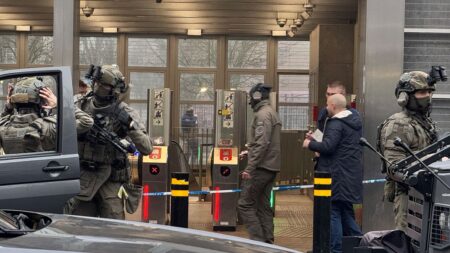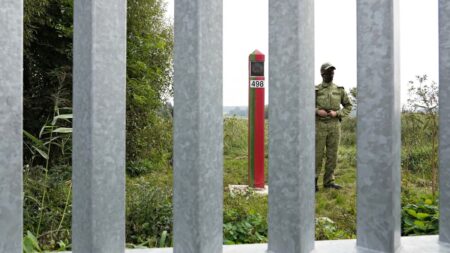Published on
•Updated
Twenty member states have flagged their interest in using loans issued by the European Commission to fund defence projects for an estimated total of over €100 billion, Andrius Kubilius revealed on Thursday.
The Commissioner for Defence and Space said on X that he is “impressed to hear that already 20 member states will request the loans”.
“More than €100 billion will be requested to ramp up European defence,” he added.
The Commission’s loan programme, dubbed SAFE, is a key plank of the ‘Readiness 2030’ proposal that aims to see hundreds of billions of euros invested into defence across the EU before the end of the decade.
The EU’s executive, which has a better credit rating than many member states, had planned to raise up to €150 billion on the markets through the scheme for member states to finance defence acquisitions together.
To tap into the loans, the projects must also include a European preference – whereby about two-thirds of value of the weapon system being acquired has to be made in an EU member state, Ukraine, or in a European Economic Area/European Free Trade Association country – and target priority capabilities including ammunition, drone and anti-drone systems, air defence, and military mobility among others.
Member states have until 29 July to officially put in a request for financing. The first disbursements are expected early next year.
Kubilius did not mention which member states have already notified the Commission of their intention to make use of the scheme, but several had already publicly made their interest known, like Latvia.
An additional advantage of using SAFE is that member states will not have to pay Value Added Tax (VAT) on the purchases.
The Council of the EU has meanwhile already approved requests by fifteen member states to deviate from the bloc’s strict fiscal rules for defence spending. These are Belgium, Croatia, Czechia, Denmark, Estonia, Finland, Greece, Hungary, Latvia, Lithuania, Poland, Portugal, Slovakia and Slovenia.
Germany has also put in a request to activate the national escape clause and is likely to be greenlighted in September.
This is the main financial plank in Brussels’ plan to rearm the bloc, with the Commission previously estimating some €650 billion could be invested by member states over the coming four years into defence.
Read the full article here

















